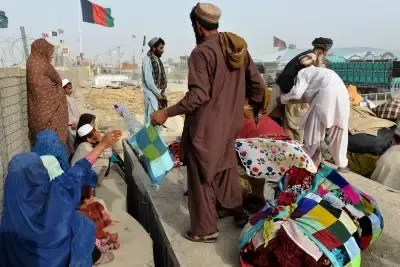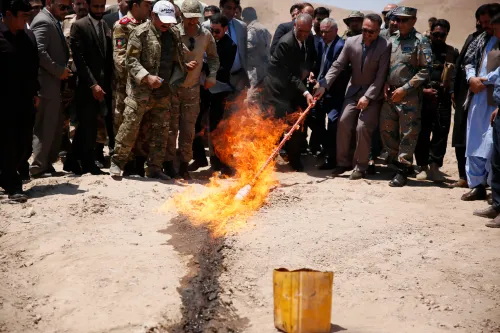Why is Iran Deporting Thousands of Afghan Refugees?

Synopsis
Key Takeaways
- Iran has deported thousands of Afghan refugees, impacting Afghanistan's economy.
- Returnees face significant challenges, including unemployment and lack of services.
- Many deportees have reported mistreatment while in Iran.
- International support is critical for the reintegration of returnees.
- Afghan government calls for better coordination with Iran on refugee issues.
Kabul, Aug 6 (NationPress) Iran has expelled thousands of Afghan refugees, many of whom had been engaged in various sectors including agriculture, construction, and skilled trades. This sudden influx is exerting tremendous pressure on Afghanistan’s already vulnerable economy, highlighting an urgent demand for job opportunities and essential support services, according to local media reports.
Abdul Rahim, an Afghan migrant formerly in Iran’s agricultural sector for four years, expressed his readiness to support his six-member family if job prospects arise in his homeland.
“We have now returned to our own country. We used to work in agriculture there. If an opportunity arises here in the agricultural sector, I would be happy because I have skills in this field,” Afghan media outlet TOLO news quoted Rahim as stating.
“If the work we did in Iran were available in our country, we would never have gone to Iran. The Iranian government and its people mistreated us. We rented houses there, and we were not paid our wages,” remarked another Afghan migrant.
Recently, Ahmadullah Wasiq, spokesperson for the Afghan Commission for Refugee Affairs, criticized the Iranian government for the poor treatment of Afghan migrants and urged them to cooperate with the Afghan government regarding the deportation process.
He called on international organizations to enhance their humanitarian assistance to returnees in collaboration with the Refugee Affairs Commission.
Earlier, Fatima, a deportee from Iran who lived there with her family for three years, shared her harrowing experiences with Iranian officials, as reported by TOLO news.
“We were brought from the camp, and they told us not to bring anything because they would help us. But on the way, no one gave us anything, and my children became very hungry. They harassed us during the journey, taking our money and phones,” she recounted.
According to a report from the United Nations High Commissioner for Refugees (UNHCR), from the beginning of 2025 to August 1, over 2.1 million Afghans have been deported from Iran and Pakistan and returned to their homeland.
“Since April 1, as of July 30, 1.4 million Afghans returned from Iran and 303,300 from Pakistan to Afghanistan. More than 2.1 million Afghans from Iran and Pakistan have returned in 2025. Despite significant needs, the situation in Afghanistan is critically underfunded, receiving only 24 percent of the required $478 million for this year,” the report emphasized.
Many Afghan migrants who were deported from Iran and Pakistan have voiced concerns regarding their challenging living conditions upon return, grappling with a lack of shelter, unemployment, and essential services.










